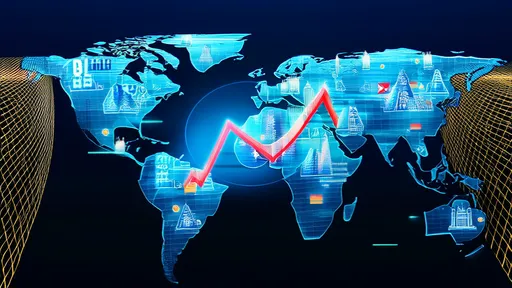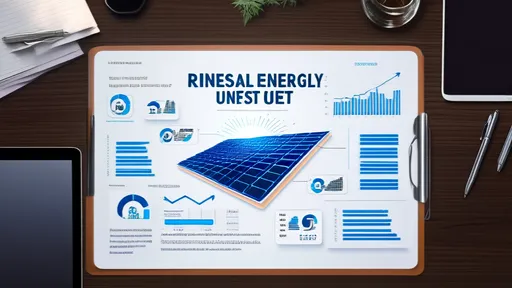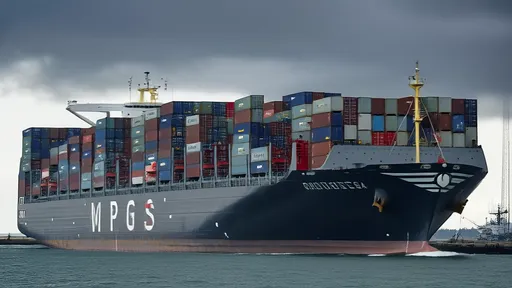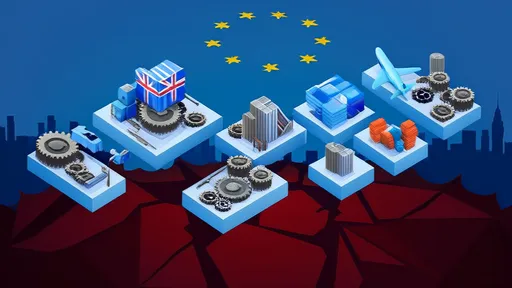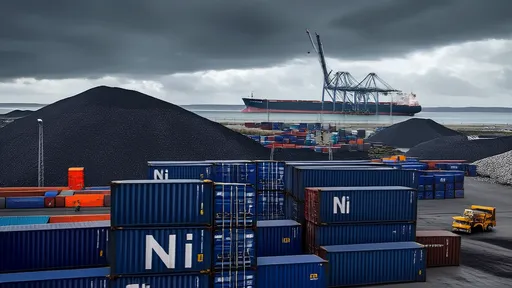The African Continental Free Trade Area (AfCFTA) has officially commenced operations, marking a historic milestone in the continent's economic integration. With the ambitious goal of doubling intra-African trade by 2035, the initiative is poised to reshape the economic landscape of Africa, fostering greater collaboration among its 54 member states. The AfCFTA represents the world's largest free trade area by the number of participating countries, covering a market of over 1.3 billion people and a combined GDP of approximately $3.4 trillion.
The significance of AfCFTA cannot be overstated. For decades, African nations have struggled with fragmented markets, high trade barriers, and reliance on external partners for commerce. The free trade area seeks to dismantle these obstacles by reducing tariffs on 90% of goods and progressively eliminating non-tariff barriers. By prioritizing intra-continental trade, Africa aims to reduce its dependence on volatile global markets and create a self-sustaining economic ecosystem.
One of the key drivers behind the AfCFTA is the recognition that Africa's trade potential remains largely untapped. Currently, intra-African trade accounts for only 16% of the continent's total trade, a stark contrast to regions like Europe and Asia, where internal trade exceeds 60%. The free trade area is designed to unlock this potential by streamlining customs procedures, harmonizing regulations, and encouraging cross-border investments. If successful, the initiative could add an estimated $450 billion to Africa's GDP by 2035.
Challenges, however, loom large on the horizon. Infrastructure deficits, bureaucratic inefficiencies, and political resistance from certain sectors threaten to slow down the implementation process. Many African countries lack the necessary road networks, ports, and digital infrastructure to facilitate seamless trade. Additionally, some industries fear increased competition from more advanced economies within the continent, leading to calls for protective measures. Addressing these concerns will require coordinated efforts from governments, private sector players, and international partners.
The AfCFTA also presents a unique opportunity for small and medium-sized enterprises (SMEs), which form the backbone of Africa's economy. By providing access to a larger market, SMEs can scale their operations, create jobs, and contribute to poverty reduction. However, many of these businesses lack the resources to navigate complex trade regulations or compete with established firms. To ensure inclusivity, policymakers must design support mechanisms such as financing schemes, capacity-building programs, and simplified export procedures.
Another critical aspect of the AfCFTA is its potential to spur industrialization. Historically, Africa has been a supplier of raw materials to the rest of the world, with limited value addition occurring on the continent. The free trade area could incentivize local processing and manufacturing, enabling African nations to move up the global value chain. This shift would not only boost export revenues but also create higher-skilled jobs and promote technological advancement.
The success of the AfCFTA will largely depend on the commitment of member states to uphold the agreement's principles. While the framework is in place, its effective implementation requires domestic policy reforms and a willingness to cede some degree of national sovereignty for the greater regional good. Countries must resist the temptation to impose unilateral trade restrictions and instead work collaboratively to resolve disputes and harmonize standards.
Regional economic communities (RECs) will play a pivotal role in this process. Organizations such as the East African Community (EAC), the Economic Community of West African States (ECOWAS), and the Southern African Development Community (SADC) have already made progress in reducing trade barriers among their members. Their experiences can serve as valuable blueprints for the broader AfCFTA framework, ensuring that lessons learned from sub-regional integration are applied at the continental level.
The African Union has emphasized that the AfCFTA is not just about trade in goods but also encompasses services, intellectual property, and investment. This comprehensive approach reflects the continent's ambition to create a single market that rivals other major economic blocs. By liberalizing trade in services such as banking, telecommunications, and transport, Africa can attract much-needed foreign direct investment and foster knowledge transfer.
Critics, however, caution against unrealistic expectations. They argue that while the AfCFTA is a step in the right direction, it is not a panacea for Africa's economic challenges. Deep-seated issues such as corruption, political instability, and weak institutions must also be addressed to create an environment conducive to trade. Moreover, the benefits of the free trade area may not be evenly distributed, with more advanced economies likely to gain disproportionately in the short to medium term.
Despite these hurdles, the launch of the AfCFTA has been met with optimism across the continent. Business leaders, policymakers, and ordinary citizens alike view it as a turning point in Africa's economic history. The free trade area aligns with the aspirations of Agenda 2063, the African Union's long-term development strategy, which envisions a prosperous and integrated continent. If successfully implemented, the AfCFTA could redefine Africa's role in the global economy, transforming it from a collection of fragmented markets into a unified and dynamic trading powerhouse.
The road to 2035 will undoubtedly be fraught with challenges, but the potential rewards make the journey worthwhile. By doubling intra-African trade, the continent can reduce poverty, create millions of jobs, and achieve sustainable development. The AfCFTA is more than just a trade agreement; it is a bold statement of Africa's determination to shape its own economic destiny.
The World Trade Organization (WTO) has issued a stark warning about the growing fragmentation of global trade, cautioning that a breakdown in international cooperation could slash global GDP by up to 5%. The alarm comes amid rising geopolitical tensions, trade barriers, and a shift toward protectionist policies that threaten to unravel decades of economic integration.
The global food price index has shown a steady decline over the past several months, offering temporary relief to consumers worldwide. However, this positive trend masks deeper structural vulnerabilities in the world's food systems that continue to threaten long-term food security. While lower prices at grocery stores and markets provide welcome breathing room for household budgets, agricultural experts warn that climate change remains an existential threat to stable food production.
The once-explosive growth of cross-border e-commerce is showing signs of cooling, prompting major platforms to shift their focus toward emerging markets, particularly Southeast Asia. After years of double-digit expansion, global online retail sales are facing headwinds from economic uncertainty, supply chain disruptions, and shifting consumer behaviors. This slowdown has forced industry players to rethink their strategies, with many turning their attention to the relatively untapped potential of Southeast Asian nations.
The race for quantum supremacy has entered a new phase as tech giants IBM and Google accelerate their efforts to commercialize quantum computing. What was once a theoretical pursuit confined to research labs is now a high-stakes battle for market dominance, with both companies vying to establish themselves as the leader in this transformative technology. The competition is heating up as breakthroughs occur at an unprecedented pace, leaving investors, governments, and industries scrambling to understand the implications.
The global housing market, once a bastion of stability and growth, is now facing one of its most significant downturns in recent memory. Across Europe and North America, property prices have plummeted by an average of 15%, sending shockwaves through economies and leaving homeowners, investors, and policymakers scrambling to respond. This sharp decline marks the bursting of what many analysts had long warned was an unsustainable real estate bubble, inflated by years of cheap credit, speculative buying, and artificially low interest rates.
The global luxury market is experiencing an unexpected chill, and nowhere is this shift more pronounced than in China. As international luxury houses report softening demand from their most crucial demographic, a quiet revolution is taking place among Chinese consumers who are increasingly turning to homegrown high-end brands. This tectonic shift in consumer behavior is reshaping the luxury landscape in ways that few industry analysts predicted just five years ago.
The global semiconductor shortage that has plagued industries from automotive to consumer electronics since 2020 is finally showing signs of easing. However, beneath this broader recovery lies a paradoxical imbalance: while advanced chip production has largely stabilized, mature-node semiconductors remain stubbornly constrained. This divergence reveals fundamental shifts in the semiconductor ecosystem that may reshape supply chains for years to come.
The global energy landscape is undergoing a seismic shift as investments in renewable energy have surpassed those in fossil fuels for the first time in history. This milestone marks a turning point in the world’s transition toward cleaner energy sources, with solar power emerging as the dominant force driving this growth. The trend reflects not only changing market dynamics but also a broader recognition of the urgent need to combat climate change.
The biotech sector is witnessing an unprecedented surge in investor interest, with gene-editing companies leading the charge. Over the past year, venture capital firms and institutional investors have poured record-breaking sums into startups specializing in CRISPR and other gene-editing technologies. The momentum shows no signs of slowing down, as breakthroughs in therapeutic applications and agricultural innovations continue to capture both scientific and financial attention.
The global artificial intelligence (AI) investment landscape is undergoing a seismic shift, with projections indicating that total spending on AI technologies will surpass $1.5 trillion by 2025. Among the key players driving this unprecedented growth, China stands out as a dominant force, accounting for an estimated 35% of the worldwide AI investment. This surge reflects not only the rapid adoption of AI across industries but also the strategic prioritization of AI development by governments and corporations alike.
The global shipping industry is facing unprecedented turbulence as freight rates skyrocket and the Red Sea crisis exacerbates supply chain disruptions. What began as regional geopolitical tensions has spiraled into a worldwide logistical nightmare, squeezing businesses already struggling with post-pandemic recovery. The ripple effects are being felt across industries, from automotive manufacturers waiting on critical components to retailers staring at half-empty shelves during peak shopping seasons.
The UK's post-Brexit economic landscape continues to face significant headwinds, with recent data revealing a record-high trade deficit and persistent contraction in the manufacturing sector. These developments have reignited debates about the long-term consequences of leaving the European Union, as British businesses struggle to adapt to new trade barriers and supply chain disruptions.
The African Continental Free Trade Area (AfCFTA) has officially commenced operations, marking a historic milestone in the continent's economic integration. With the ambitious goal of doubling intra-African trade by 2035, the initiative is poised to reshape the economic landscape of Africa, fostering greater collaboration among its 54 member states. The AfCFTA represents the world's largest free trade area by the number of participating countries, covering a market of over 1.3 billion people and a combined GDP of approximately $3.4 trillion.
The Philippines and the United States have recently inked a pivotal agreement aimed at strengthening cooperation in the critical minerals sector, a move widely interpreted as an effort to reduce reliance on China. This strategic partnership underscores the growing geopolitical significance of securing supply chains for minerals essential to modern technology, renewable energy, and defense systems. As tensions between Washington and Beijing continue to escalate, the deal signals a broader shift in global trade dynamics, with nations increasingly seeking alternatives to Chinese dominance in the critical minerals market.
The global electric vehicle (EV) industry is facing a significant cost surge as Indonesia, the world’s largest nickel producer, enforces a strict ban on nickel ore exports. The policy, initially introduced in 2020 to promote domestic processing, has now begun to exert intense pressure on battery manufacturers scrambling to secure alternative sources. With nickel being a critical component in lithium-ion batteries, the restriction has disrupted supply chains and driven up production costs for EV makers worldwide.
